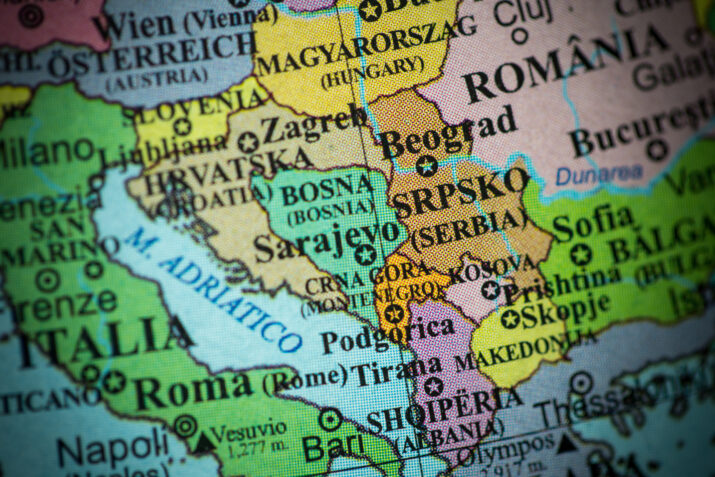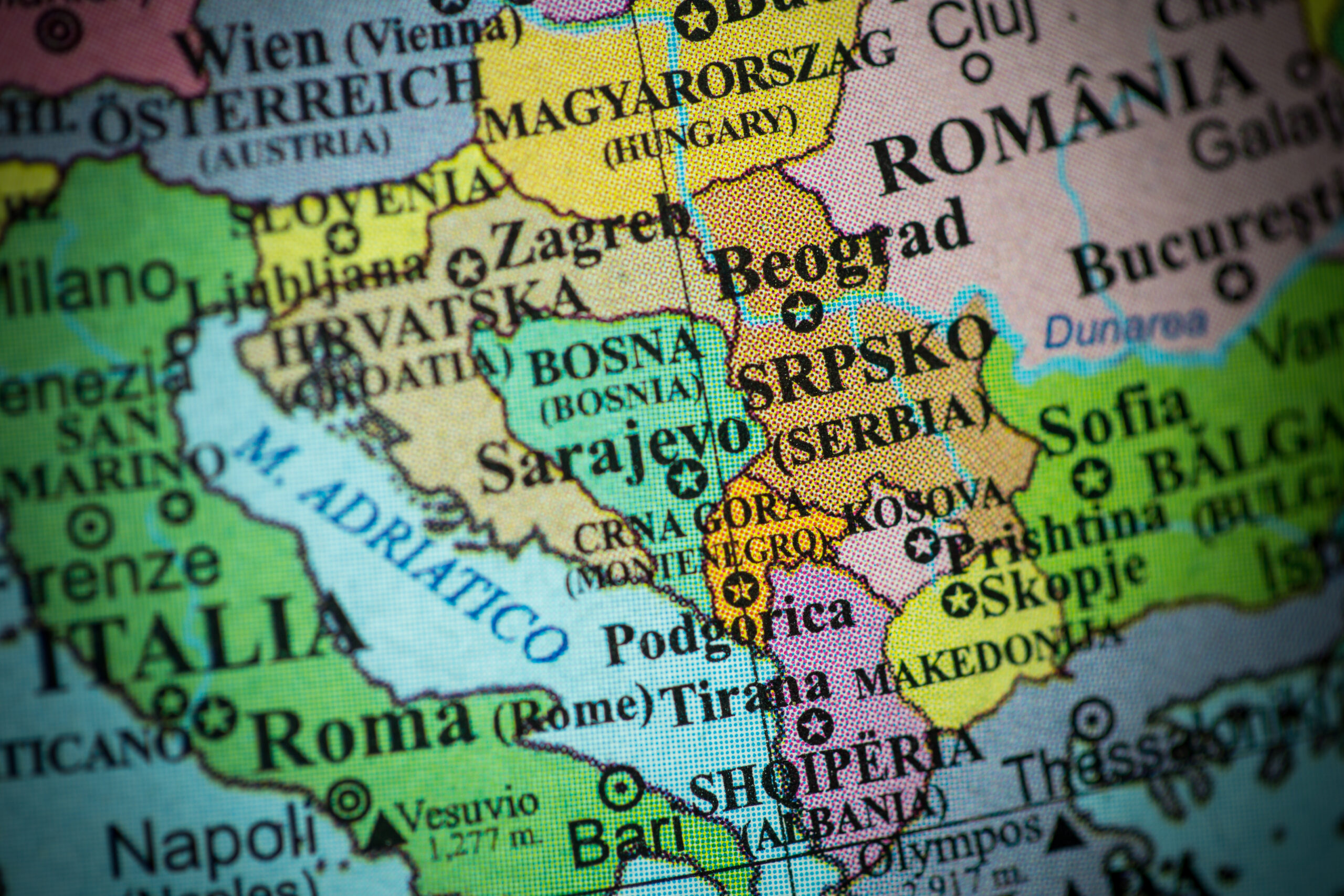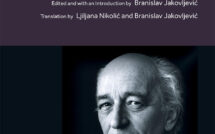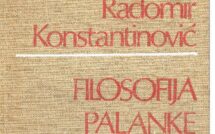
A Roundtable on Serbian Philosopher Radomir Konstantinović: “Parochialism” in Translation

An introduction to a roundtable, Serbian Philosopher Radomir Konstantinović: “Parochialism” in Translation.
Penned in the 1950s and published at a time of rising nationalism in Yugoslavia, Serbian philosopher and writer Radomir Konstantinović’s (1928-2011) The Philosophy of Parochialism (1969) remains a keystone of Serbian and South Slavic literary-philosophical scholarship. Having gone through seven editions in Serbo-Croatian, the book, translated by Liljana Nikolić and Branislav Jakovljević (2021),[1] has now reached Anglophone readers, who stand to benefit from its theoretical heft and searing wisdom that foreground and dissect parochialism through means of the metaphor of the province (palanka)—or the spirit of provincialism. In turn, the book functions as a study of the anatomy of insular tendencies such as ethnic nationalism, among others, taken to their political conclusions. Emerging from Southeastern Europe—Europe’s continental margins—The Philosophy of Parochialism nevertheless posits that the conditions of the province and the spirit of provincialism are not exclusive to the Balkans.
Seeing as the book was motivated by a perennial and fundamental question of modern societies—whence totalitarianism?—the atrocities of World War II cast a long shadow over it when it was first released. Critical of Serbian nationalism, the book drew controversy, acclaim, and derision. Observers turned to the book to offer their insights during the Yugoslav Wars of the 1990s. The book has now reemerged, no doubt prompted by its potential to aid a deeper understanding of the precipitous rise in right-wing politics and what historians and other pundits have warned is a period of resurgent nationalisms wherein the threat of totalitarianism heralded by the interwar years looms.
Even as it reflects on the features of the borders, frontiers, and demarcation lines that characterize the province, Konstantinović’s compact prose crosses and breaks down bounded categories, geographies, academic fields, and disciplines. The Philosophy of Parochialism makes a robust contribution to post-colonial theory, predating the emergence of the field itself, instantiated by the publication of Edward Said’s landmark book, Orientalism (1978).[2] According to translator Branislav Jakovljević, the greatest contribution of Konstantinović’s book lies in its analysis of continental imperialism, as opposed to overseas imperialism—continental imperialism being the more rarely examined of the two forms.
Anticipating the misconceptions that are bound to emerge in reference to a book with the term “parochialism” in its title, Jakovljević dutifully reminds readers that the book does not, in fact, promote a philosophy of individualism. Instead, Konstantinović’s work aims to instill a deeper understanding of an extreme form of individualism, of the insidious emergence of totalitarianism, and of the propensity toward insular social and collective behaviors, in the hopes that people will recognize the dangers of violent ideologies as they arise. Konstantinović’s formulation of the concept of spirit (duh in Serbian) or mind, which suffuses the book’s language, is closely tied to Hegel’s concept of world spirit. At the same time, Konstantinović considers individualism to be a function of the parochial spirit. Serbian Nazism, he argues, was not an outgrowth of German national-socialism, “which it served and emulated, but the ultimate expression of the parochial spirit” (300). Konstantinović goes on to identify six specific tenets of the poetics of Serbian Nazism underpinned by three basic principles encapsulating parochial philosophy: “self-sacrifice of the individual, absolute rationality, and absolute realism” (309).
On the spirit of parochialism, Konstantinović writes that
The world of the province exists only in spirit; the spirit of the province is itself an absolute province, unsurpassable by any provincial reality. It has no world of its own into which it could be perfectly materialized, one that would represent its ideal embodiment. However it tried to present the world of the province wherein it was born as its own, and even if it felt that world the closest, it is still a wandering spirit, an impossible spirit: there is no country where it is not possible, because it is everywhere equally impossible in its demand for the ideally closed, out of time, and thereby eternal nothingness (25-26).
In other words, the dangers of parochialism lurk everywhere. Konstantinović is an instructive thinker for his adept analysis, which stands at the intersection of literary and philosophical theory. After all, the philosophy of parochialism stemmed from Konstantinović’s abiding interest in poetry as a literary form, creative mode, and genre emmeshed in culture and history. As Jakovljević claims, Konstantinović was
not concerned with the individual careers of poets or the historical development of poetic styles and schools of poetry, but with what he broadly defined as the ‘poetic experience.’ That includes individual poets’ entanglements with deeper cultural and historical currents, and their attitudes toward ideological doctrines and political movements.[3]
In the 1950s, while he was still in his early twenties, Konstantinović published a study of the Serbian nineteenth-century romantic poet Đura Jakšić, followed a year later by the release of his own collection of poetry, Roofless House. The origins of The Philosophy of Parochialism are a reflection of the author-cum-philosopher’s intellectual preoccupations and literary tastes. The book stems from Konstantinović’s interest in poetry, both as someone who dabbled in poetry himself and as someone who reflected on the aesthetics of poetry. Konstantinović compiled an anthology of Serbian poets of the early twentieth century; in fact, the book that would become The Philosophy of Parochialism sprang from this earlier project. At its foundation, it was an attempt to locate and expound upon an aesthetics of the parochial within the context of Serbian nationalism. Konstantinović later went on to write novels, which tended to feature “isolated individuals moving through an absurd world,”[4] and a corpus of critical essays. The Philosophy of Parochialism was followed by Being and Language in the Experience of Poets in Serbian Twentieth Century Culture (1983), an eight-volume work of literary criticism.[5]
In this roundtable, we hear from several contributors who have considered the significance of The Philosophy of Parochialism to the field of European studies. In his contribution, Branislav Jakovljević identifies Konstantinović’s idea of “end times” as one of the primary features of the parochial spirit and its relation to contemporary discourses around climate change and the natural environment. Djordje Popović then offers an analysis of temporality in Konstantinović’s work, namely the philosophy of history in what he identifies as the left-Hegelian underpinnings of his book. In contrast, Edin Hajdarpašić approaches the book through a personal lens, explaining how his relationship with it changed from his first encounter with it in postwar Sarajevo to his second in Chicago in 2022. He explains how he came to see it anew and became less enamored with its searing opening line: “our experience is parochial.” Finally, Matvei Yankelevich applies Konstantinović’s work and theories to the world of translation, more specifically to the attitudes held toward the enterprise.
The hope is that this book will now serve wider audiences both across Europe and the world. Konstantinović’s theories are grounded in the Serbian and Yugoslav context, but they always have had greater applicability and relevance. They have now entered a wider arena, one that English-speaking audiences and the field of European studies will have to absorb in order to understand and push past the recurrent challenges and dangers of modern society: insularity, closed cultures, and paranoid nationalism.
A Roundtable on Serbian Philosopher Radomir Konstantinović: “Parochialism” in Translation
-
“The Spirit of Parochialism and Imperial Teleophilia” by Branislav Jakovljević
-
“The Parochial Spirit in Translation Through the Lens of Radomir Konstantinović” by Matvei Yankelevich
-
“The Subject in Palanka: ‘The Philosophy of Parochialism’ and the Work of Immanent Critique” by Djordje Popović
-
“‘Our Experience:’ Two Postwar Readings of Radomir Konstantinović’s Philosophy of Parochialism” by Edin Hajdarpašić
Suzana Vuljevic is a writer, translator, and editor who teaches in the department of Modern Languages at DePaul University. She holds a PhD in history and comparative literature from Columbia University. Her research explores the nexus of culture and politics, pan-Balkanism, and discourses of spirit, and her work has appeared or is forthcoming in both academic and popular outlets such as Harvard Magazine, Eurozine, Words Without Borders, Undark, and more.
References
[1] The Philosophy of Parochialism trans. by Liljana Nikolić and Branislav Jakovljević (Ann Arbor, MI: University of Michigan Press, 2021).
[2] Edward Said, Orientalism (New York: Pantheon Books, 1978).
[3] Branislav Jakovljević, The Philosophy of Parochialism trans. by Liljana Nikolić and Branislav Jakovljević (Ann Arbor, MI: University of Michigan Press, 2021), 11.
[4] John K. Cox, “Radomir Konstantinović and Provincial Philosophy: Binaries as Borders,” Colloquia Humanistica 6 (2017), 63.
[5] Radomir Konstantinović, Biće i jezik u iskustvu pesnika srpske kulture dvadesetog veka, 8 vols. (Belgrade: Prosveta, 1983).
Published on February 15, 2024.




